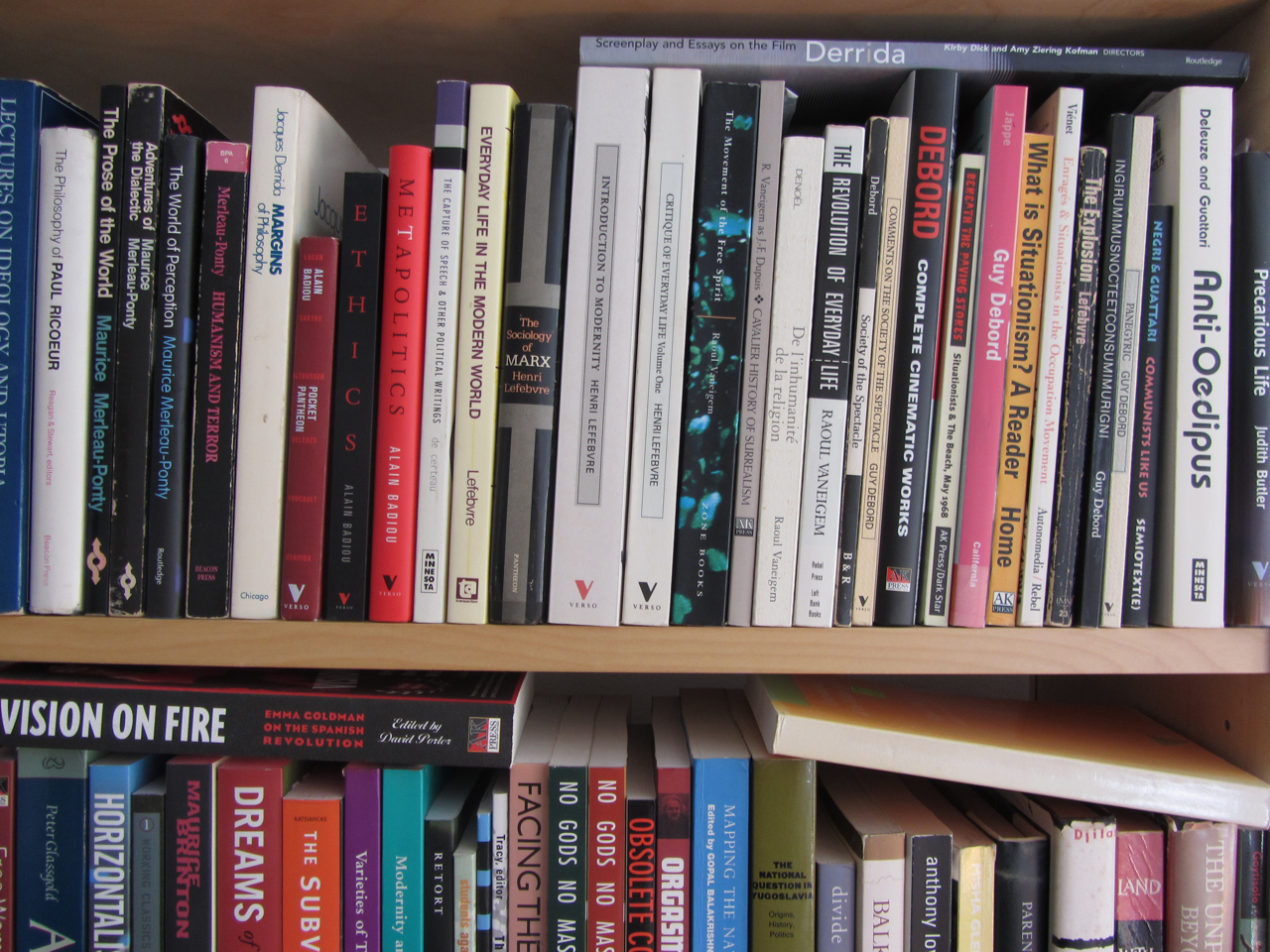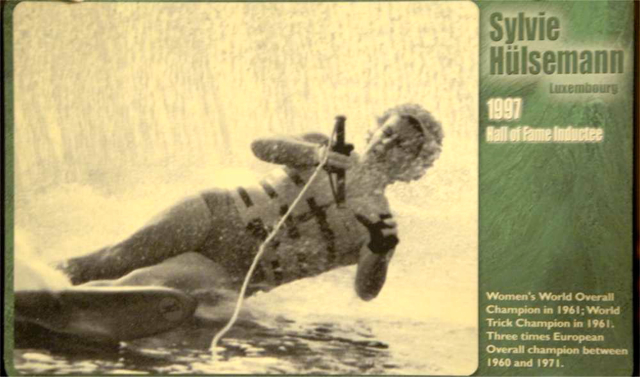Two weeks ago, my life took a slightly strange turn. My past and future collided in a clash between old media and new media. Let me explain.
Although I’ve never had a secure, long-term post, I’ve been working in academia since completing my PhD in 2001. Over this time, I’ve amassed a number of publications, including two monographs (one of which was co-authored,) a co-edited book, three journal articles and a number of book chapters. Last week, I received my copy of my most recent publication, Religion and Popular Music in Europe, a collection I co-edited, and to which I also contributed my own essay.
It’s a ground-breaking book. The study of religion and popular music is still relatively under-developed as a field, and the majority of existing studies have concentrated on the US. The book contains some solid chapters on such topics as Christian metal in Finland, Yusuf Islam (AKA Cat Stevens,) and my own piece, on the reception of American contemporary Jewish music in the UK.
Given the modest size and scope of the book, the process of producing it was pretty convoluted. My co-editors (one Swedish, one Finnish) and I started collecting chapters as far back as 2005. Editing contributions and writing an introduction took a long time due to language differences and the pressures of work. Contributors took their time in producing final versions.
Finding a publisher also took years. When we found one (I. B. Tauris,) we needed to raise money to fund publication, which my Swedish colleague managed to do, as subsidized publishing is much more common in his country. Then there was proof-reading and production, which took months.
The final product looks pretty good, but the price! Despite the subsidy, the collection is hard back only and costs £49:50. The promotional strategy is minimal to non-existent. The likelihood is that the collection will find its way into 2-300 specialist libraries and a few very keen researchers working in the field. This story is not unusual. In fact, £49:50 compares very well to other academic hardbacks which can cost two or three times that amount.
The book represents a small contribution to knowledge, and as such is nothing to be sneezed at. But it also embodies the limitations of academic publishing and even of academia itself. The high cost, the lack of promotion and the incredibly long production process, all distance the book from anyone but a small number of experts. It may add to the sum total of human knowledge but it doesn’t reach out further and use that knowledge for any real purpose. It is like an arcane kind of fanzine, servicing the needs of a committed and isolated bunch of experts. It is so self-effacing in its lack of ambition as to make itself almost invisible.
The strange combination of pride and disappointment with which I greeted the book, was heightened by something else that happened the day I received it. As I unwrapped it, another book of mine was being unveiled.
Not only is The Best Water Skier in Luxembourg: Tales of Big Fish in Small Ponds not an academic book. It is not (at this stage at least) a book at all. In fact, it’s a funding pitch on a new crowd-funding publishing platform called Unbound. As with Kickstarter and similar platforms, on Unbound writers take their book pitches directly to readers. If readers like the pitch they pledge to support the project and if enough people do so the book gets written. Unlike Kickstarter, Unbound is not open to all and is heavily curated. In effect Unbound is a cross between a crowd-funding site and a publishing company.
The speed at which Unbound works makes it the polar opposite of academic publishing. I only had the idea for the book last April. As an expert in a couple of small academic fields, for years I’ve joked that I am just like the best water skier in Luxembourg. On holiday with my family over Easter, it suddenly hit me: why don’t I actually meet and write about the best water skier in Luxembourg? The idea came out almost fully formed. I would investigate experts and successes in small fields in small countries. The book would be a travelogue that paid tribute to the pleasures and pains of achieving excellence, the joys and the woes of small communities. It would be an unashamedly popular, light-hearted book, but one with a serious sociological message about expertise, community and identity.
So I put together a one-side outline pitch, explaining the rationale for the book and setting out the people and places I would visit:
- The best water skier in Luxembourg
- The Icelandic special forces
- The top bassoonist in Finland
- The most popular heavy metal band in Botswana
- The most powerful politician on St Helena
- The greatest living Surinamese novelist
- Malta’s favourite soft drink
- The greatest living expert on Cornish
Unbound was launched in May and shortly after I e-mailed the proposal to them, thinking the site would be perfect for the book but not expecting a response. In June, John Mitchinson of Unbound contacted me to say they loved the pitch and wanted to work with me. After a few meetings to discuss details, I found myself on a water skiing lake being filmed for a pitch video in early August. On the 25th of August, the pitch went up on the Unbound site. I am pitching for support to write the Luxembourg chapter to start with. At the time of writing, the chapter has received over 15% of its target funding in less than a week.
The sheer speed, flexibility and openness of this process has taken my breath away. It is an utterly different experience to academic publishing and is enormously invigorating. An idea that I had just a few months ago seems likely to become reality. If and when the book is funded, a transition I have long wished to make, from academic to non-fiction writer, may be well under way.
Is Unbound the future? Is it even my future? At this point it’s impossible to tell. I would still man the barricades in defence of the most obscure, arcane types of academic publishing. I still believe in publishers producing books for tiny audiences. I don’t think that everything needs to be populist. Crowd-sourcing will not work for everyone and everything (it may not even work for me.)
However I do know that the sheer enthusiasm and excitement of my collaboration with Unbound is something that academic publishing badly needs. Further, the principle that writers should work hard to connect with readers is a good one. Whatever Unbound is, it isn’t complacent. I also know that if and when The Best Water Skier in Luxembourg is published, it will be because many people want it to be published. That cannot be a bad thing. If academic publishers could take on just a bit of Unbound’s élan, then maybe academia itself could be more responsive, more vital, more outward-facing.
Photograph by Joel Schalit






What a magnificent alternative to the gruelling process of traditional publishing. I’ve heard that nil publicity story many, many times. It’s not just academic publishing that needs a good push…
Thanks for this, Keith. You raise very important points, particularly when we start to factor in issues of impact and knowledge exchange beyond the academy (goals that are often emphasised in the UK). In academic publishing, one often takes on the jobs typically held by the publisher such as indexing and promotion. In terms of the latter, one can publicise the book to research clusters and listservs (also an excellent source for crowdsourcing advice on publishers) but even so, the problem of cost is a big one. I have small library budget and the massive £60 clothbound books are unlikely to make the cut although I try.
Academic publishing, as was recently noted in the Guardian (http://www.guardian.co.uk/commentisfree/2011/aug/29/academic-publishers-murdoch-socialist), is something of a racket; it’s certainly exploitative of academic labour and yes, the turnaround is ludicrous. It seems more geared to older scholarship (such as Classics, where transformations in platforms, technologies and content are perhaps a bit slower). And it is important to find alternatives.
Unbound seems great, but I wonder about how it will function for academics. What is the minimum amount needed? If it’s a closed site, how does one do outreach to the reading communities that would take interest in this book? What kind of effort and time is involved in crowdsourcing funding? What kind of promotion and publicity does it offer? And most importantly for academics, is there a peer-review that ensures credibility and quality of scholarship? For academics in the UK, this is particularly important in light of the national research reviews (RAE, REF). This last issue is somewhat similar to the quandary faced by academics who have the opportunity to publish something popular. It’s great for outreach, but one wonders how it will be received within the academy. I’m not saying one shouldn’t do things because of the old guard’s resistance to change, but examination of the differing economies and their points of intersection are in order.
Full disclosure: I’m the MD of Pluto Press. We regard most of our list as fairly academic – and we tell all of our authors that, nowadays, their work is only half done when they’ve delivered the manuscript and signed off on proofs. Increasingly, the enthusiastic engagement of authors in the promotion of their work – by whatever means necessary – can make a very real difference. Given the thousands upon thousand of books that are published every year, those authors who shout the loudest, even in scholarly publishing, stand a slightly better chance of alerting potential readers to their work – and we do the best we can to support them in their efforts.
Hi Anne. I think that Pluto Press is much more outward-focused than most purely academic publishers. That’s probably because you have a political agenda which means you aren’t only interested in the ivory tower. I totally agree though the authors do need to publicise their work, although it would be nice to have some assistance from the publisher.
Many thanks for the comment. I’m not sure whether the Unbound model would work in academic publishing. For one thing, I doubt academic libraries would pledge money in advance.
Having said that, Unbound is different from Kickstarter in the sense that it is curated and because of that one could envisage incorporating peer review in a similar platform.
In any case, one of the reasons I’m exploring Unbound is that I want to make a move towards non-academic writing,
Are you taking email addresses for notification when TBWSIL is published? The concept is boggling, and I will not be able to keep myself from buying/stealing/begging a copy.
Thanks William. To be honest, the best way to find out when TBWSIL is published is to support the book! The lowest support level is £3 – and you get the money back if the chapter isn’t funded.
Is £50 expensive? My partner’s academic tome retails for $158!
Even Rev. Tony Blair’s memoir had a “recommended retail price” of £25. Not in Asda, obviously.
And thereby hangs a tale. Despite 2008 & its aftermath, acquisition and economies of scale still drive book, sorry, media business thinking. Most are still reeling from the M&A binge over the last decade, if they haven’t just come out of bankruptcy, phenomena not unrelated to captive market (ie, library) price gouging. (Meanwhile, I know of a UK mega-publisher currently looking to outsource its editing from New York to the Philippines!)
Unbound might not be the answer to academic publishing woes. But such models or partnerships may invigorate university press publishing, fulfilling their ‘diffusion of knowledge’ mission by adapting & shaping scholarly works into trade formats. There is a *need* for the former, but there might just be a market for the latter.